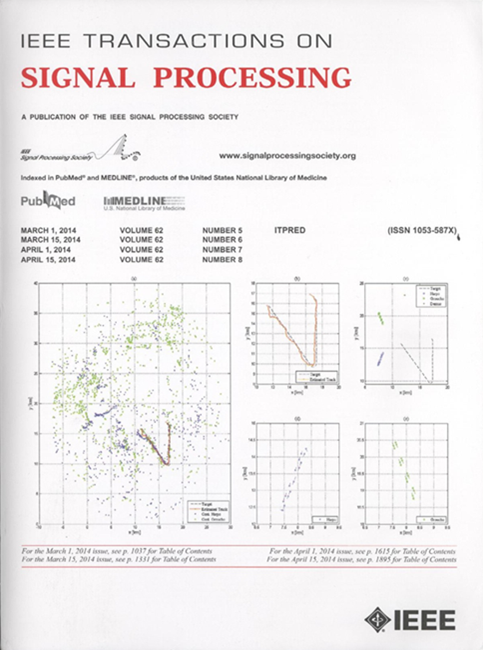基于局部基函数的高斯过程地形图空间可伸缩递归估计
IF 4.6
2区 工程技术
Q1 ENGINEERING, ELECTRICAL & ELECTRONIC
引用次数: 0
摘要
我们通过执行局部计算而不是同时处理整个地图,解决了高斯过程(GP)回归大规模地理空间映射的计算挑战。传统的GP回归方法通常涉及计算和存储成本,这些成本要么随测量数量的增加而增加,要么随映射区域的空间范围而增加,这限制了它们在实时应用程序中的可扩展性。我们的方法放置了一个有限支持基函数的全局网格,并将计算限制在网格的局部子集上:1)在更新地图时围绕测量,2)在查询地图时围绕查询点。这种本地化方法确保在每个时间步只更新或查询相关区域,在保持准确性的同时显著降低了计算复杂性。与许多现有的方法不同,这些方法会受到边界效应的影响或增加地图面积的计算成本,我们的本地化方法避免了不连续,并确保无论地图大小如何,计算成本都是可控的。这种近似GP地图的方法在有限的计算预算下,为执行快速在线地图更新和快速在线查询大型地理空间地图的专门任务提供了高精度。因此,对于需要这些属性的实时应用程序,例如在大型非线性地理空间领域中的实时同步定位和映射(SLAM),它是一个合适的近似值。我们在磁场测量的实验数据中表明,无论是递归磁场测绘还是磁场SLAM,与现有方法相比,我们的算法更快,同样准确。本文章由计算机程序翻译,如有差异,请以英文原文为准。
Spatially Scalable Recursive Estimation of Gaussian Process Terrain Maps Using Local Basis Functions
We address the computational challenges of large-scale geospatial mapping with Gaussian process (GP) regression by performing localized computations rather than processing the entire map simultaneously. Traditional approaches to GP regression often involve computational and storage costs that either scale with the number of measurements, or with the spatial extent of the mapped area, limiting their scalability for real-time applications. Our method places a global grid of finite-support basis functions and restricts computations to a local subset of the grid 1) surrounding the measurement when the map is updated, and 2) surrounding the query point when the map is queried. This localized approach ensures that only the relevant area is updated or queried at each timestep, significantly reducing computational complexity while maintaining accuracy. Unlike many existing methods, which suffer from boundary effects or increased computational costs with mapped area, our localized approach avoids discontinuities and ensures that computational costs remain manageable regardless of map size. This approximation to GP mapping provides high accuracy with limited computational budget for the specialized task of performing fast online map updates and fast online queries of large-scale geospatial maps. It is therefore a suitable approximation for use in real-time applications where such properties are desirable, such as real-time simultaneous localization and mapping (SLAM) in large, nonlinear geospatial fields. We show on experimental data with magnetic field measurements that our algorithm is faster and equally accurate compared to existing methods, both for recursive magnetic field mapping and for magnetic field SLAM.
求助全文
通过发布文献求助,成功后即可免费获取论文全文。
去求助
来源期刊

IEEE Transactions on Signal Processing
工程技术-工程:电子与电气
CiteScore
11.20
自引率
9.30%
发文量
310
审稿时长
3.0 months
期刊介绍:
The IEEE Transactions on Signal Processing covers novel theory, algorithms, performance analyses and applications of techniques for the processing, understanding, learning, retrieval, mining, and extraction of information from signals. The term “signal” includes, among others, audio, video, speech, image, communication, geophysical, sonar, radar, medical and musical signals. Examples of topics of interest include, but are not limited to, information processing and the theory and application of filtering, coding, transmitting, estimating, detecting, analyzing, recognizing, synthesizing, recording, and reproducing signals.
 求助内容:
求助内容: 应助结果提醒方式:
应助结果提醒方式:


